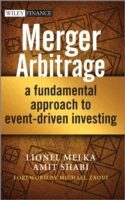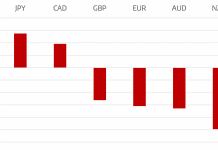By their very nature, arbitrage-based trading strategies require a very high skill level and tend not to yield massive profits, although some types of arbitrage involve more risk – and potential reward – than others. Merger arbitrage, a strategy that involves the simultaneous purchase and sale of stocks in two companies that are merging, is one of these strategies.
Before we get too into the specifics of how merger arbitrage strategies work, let’s recap the basic concept of arbitrage. In its simplest form, arbitrage involves buying securities on one market to sell immediately in another market in order to make an immediate, guaranteed profit from a discrepancy in pricing between the two markets.
In the world of hedge funds, arbitrage is a term that is more commonly used to refer to the simultaneous purchase and sale of two similar or related securities whose prices are not in keeping with what the trader believes to be their ‘true value’. Assuming that the prices will move back to their true value over time, the trader buys the underpriced (or over-sold) security and short-sells the overpriced (or over-bought) security. Then, all things being equal, the prices will revert to their true value and the trades can be closed at a profit.
Perhaps a quick definition of short-selling could be useful here too. In essence, short selling involves borrowing a security that you do not own, selling it, then if it declines in value you can buy it back at a lower price than you paid for it, return the borrowed securities, and pocket the difference. Of course, if it goes up in value instead, you will have to pay more and close the trade at a loss, but this risk is also inherent in long trades, where you buy a security in the hope that it will increase in value, and then sell it later for a profit.
Lots of different types of securities can be used as part of an arbitrage trading strategy. For example, you could use it to buy and sell two stocks, two commodities, or a security and a related derivative such as a commodity and a futures contract based on that commodity.
Returning to our main topic, merger arbitrage is classed as a type of event-driven investing, in that it seeks to exploit pricing inefficiencies that can occur before or after a corporate event such as a merger, acquisition, spinoff, or bankruptcy. As such, it is a hybrid between arbitrage-based strategies (considered low-risk/low potential return) and event-driven strategies, which are considered high risk/high potential return).
To demonstrate how it works, let’s look at what happens in the case of a potential merger. Usually, when it is widely expected that a company will buy another company, the stock price of the company looking set to be bought out will rise, and the stock price of the company that is doing the buying will fall. However, the stock price of the company that is being targeted for the takeover will usually hover somewhere below the eventual acquisition price, in reflection of the uncertainty in the market about whether the merger will actually take place or not.
This is where merger arbitrageurs come in. Before we go any further, it’s important to understand that corporate mergers can take one of two forms – either cash mergers, or stock-for-stock mergers.
In the case of cash mergers, the company doing the buying will buy shares in the company being bought for cash, and until the acquisition is complete, the stock of the company being targeted will usually trade below the acquisition price. So, a trader can buy the stock of the company being targeted before the acquisition, and turn a profit if the acquisition goes through. This is a basic speculative trade that has nothing to do with arbitrage.
However, an abitrage-based strategy can come in useful in the case of a stock-for-stock merger. In this situation, the company doing the acquiring offers their own stock in exchange for stock in the company being targeted. This presents an opportunity for a merger arbitrageur to buy stock in the company being targeted while simultaneously short-selling the stock in the company that is doing the achquiring. Then, when the merger is finalised, the target company’s stock will be converted into stock from the acquiring company, and this converted stock is used by the arbitrageur to cover the short position.
Although this may sound fairly straightforward, there are several risks associated with it. For example, the merger might not go through because of regulatory issues (e.g. antitrust laws), because shareholders did not approve the merger, or because one of the companies involved failed to satisfy the conditions of the merger.
Problems can also arise when the exchange ratio, which is the ratio at which the target companys stock is exchanged for the acquiring companys stock, fluctuates along with the stock price of the company being acquired. This can make it difficult and complicated to evaluate an merger arbitrage opportunity, and will require the merger arbitrageur to have a very high level of expertise in order to manage it successfully.
These risks mean that merger arbitrageurs need to have sufficient skill and knowledge if they are to assess a potential merger with any degree of accuracy. In order to determine the likelihood of the merger occurring, and how it is likely to do so, a merger arbitrageur has to analyse a range of factors, such as the reason for the merger, the terms, and any regulatory issues that could get in the way of the merger.

The high level of expertise required for this strategy is the main reason why the main users of merger arbitrage are large institutional investors such as investment banks, private equity firms, and hedge funds. So while merger arbitrage can be a highly effective strategy, it is one that is best left to the experts in arbitrage and event-based trading, as the chances of making a costly miscalculation can be quite high.
If you’d like to find out more about the merger arbitrage investment strategy, Lionel Melka’s Merger Arbitrage: A Fundamental Approach to Event-Driven Investing provides an in-depth description of how strategies of this type are employed by hedge funds and other institutional investors, with several real-life examples to illustrate the various principles under discussion.
Read More:
hedge fund vs asset management
I am a writer based in London, specialising in finance, trading, investment, and forex. Aside from the articles and content I write for IntelligentHQ, I also write for euroinvestor.com, and I have also written educational trading and investment guides for various websites including tradingquarter.com. Before specialising in finance, I worked as a writer for various digital marketing firms, specialising in online SEO-friendly content. I grew up in Aberdeen, Scotland, and I have an MA in English Literature from the University of Glasgow and I am a lead musician in a band. You can find me on twitter @pmilne100.




































